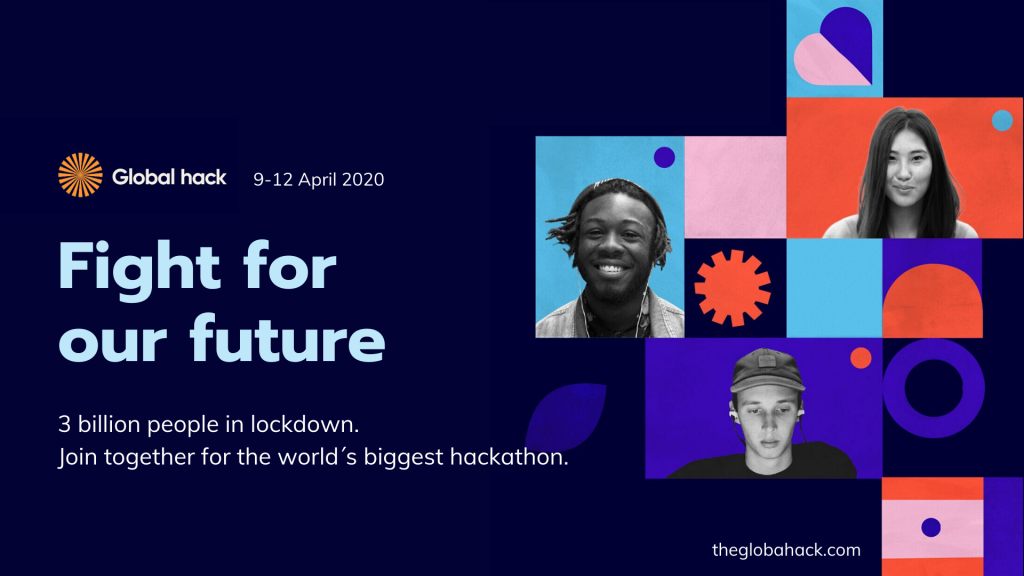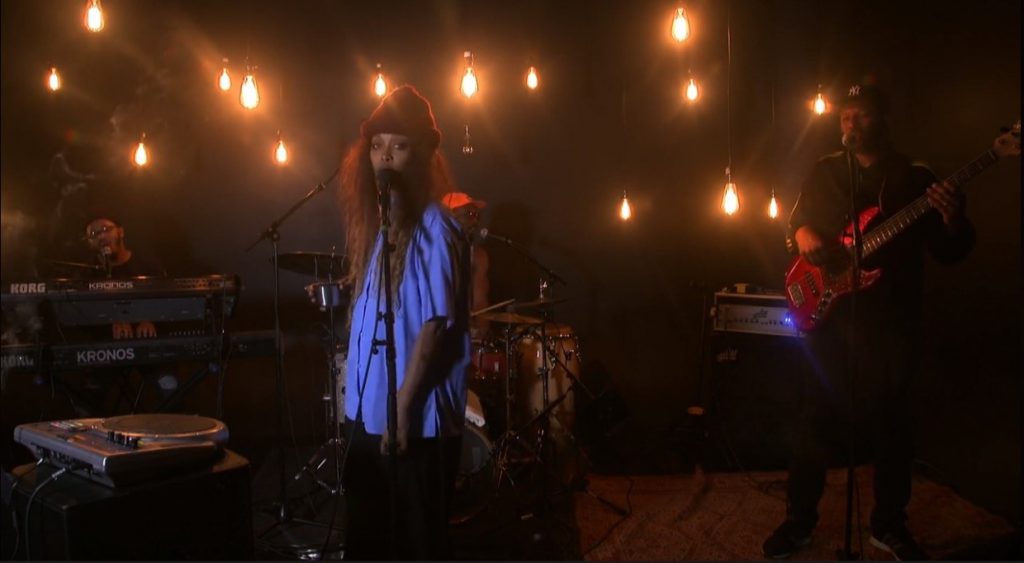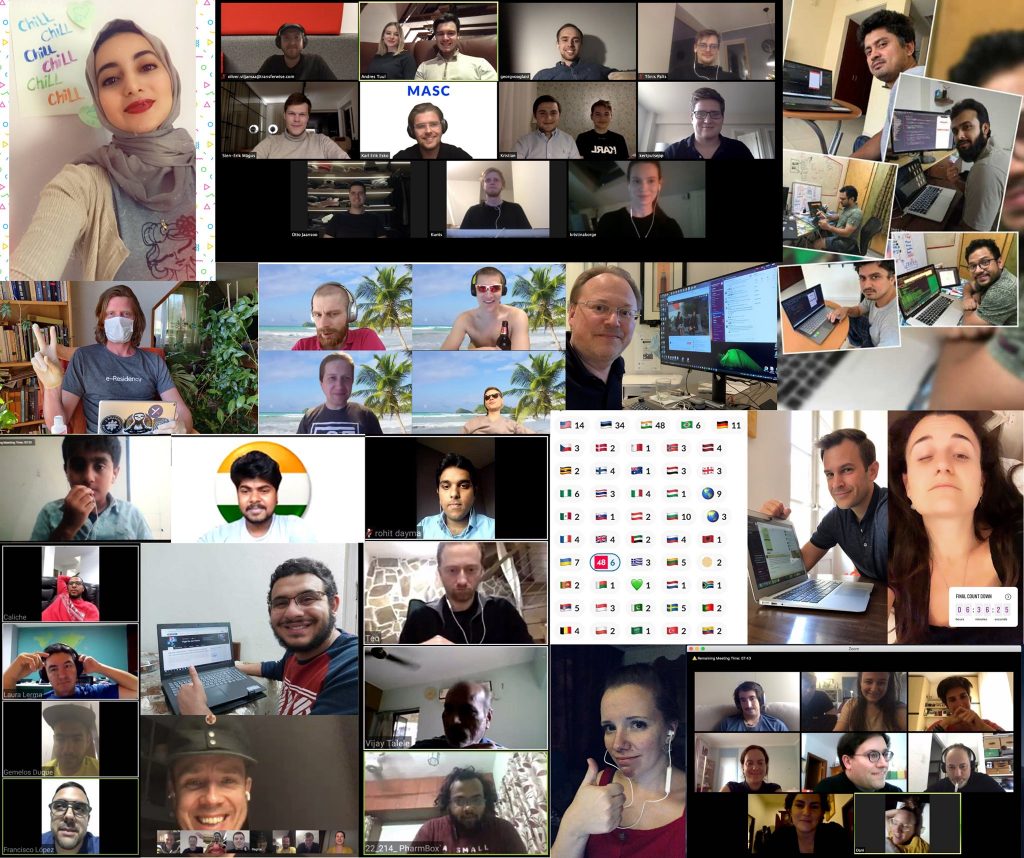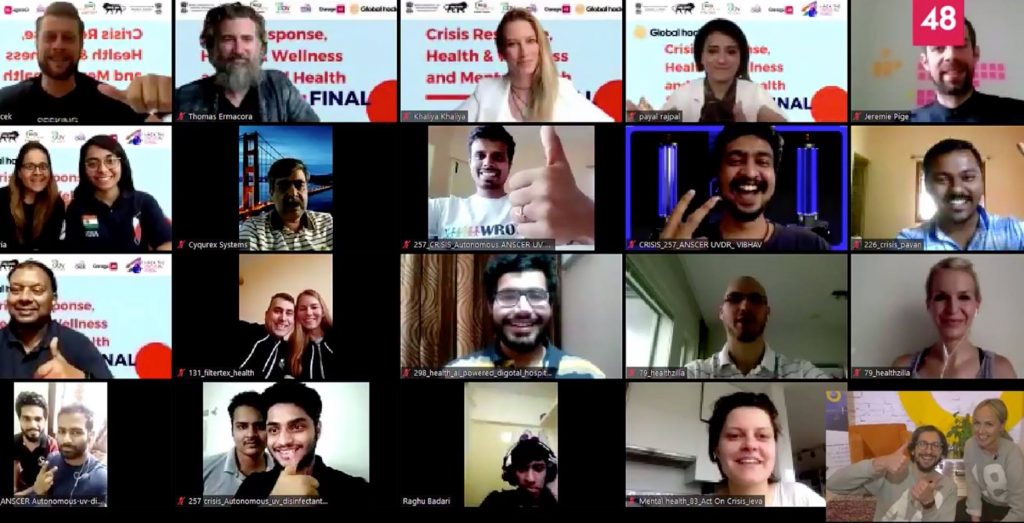Instead of searching for Easter eggs, more than 12,000 hackers from 98 countries came together over the Easter weekend for 48 hours to search for solutions to tackle the ongoing coronavirus crisis, Katharina Sowa, a German expat living in Tallinn, Estonia, writes.
A few weeks ago, my colleague asked me if I would be interested to join the media team at the Global Hack, an Estonian-initiated global online hackathon from 9-12 April that aimed to find practical solutions for the current coronavirus crisis. Without hesitation I said “yes”. At that point I couldn’t even imagine what an incredible movement and inspiring team I had joined.
I’ve been watching Estonia for almost 10 years now, five of them I have lived and worked here. And yet I’m always impressed how innovative ideas and great actions start and develop in this country.
The core initiative for the hackathon came from the Estonian startup organisations Garage48 and Accelerate Estonia, and Guaana, a community-based platform to run online innovation and research challenges. They organised the very first hackathon, “Hack the Crisis”, from 13-15 March in Estonia. After this hackathon, the organisers saw that this success story also inspired other countries, so it grew into a global movement, bringing together smart minds from all over the world. The movement itself is a complete volunteer-led initiative and only the dedication of a team of “locked down” volunteers worldwide who donated hundreds of hours of their time brought this event to life.

It was and still is a great experience to work with such a professional and talented team. People with different backgrounds, amazing talent, and can-do attitude. We gifted each other with a unique learning experience, and also a lot of fun and joy – a pleasant relief in difficult times like these.
Ideas that have no borders
The idea behind the hackathon was simple. You share your ideas or find inspiring ideas in the hack’s community, and then find your teammates to work on an idea and start hacking.
The hackathon offered several tracks to work on. These tracks were inspired by the UN sustainability goals and covered most of our future challenges – arts and creativity, economy, crisis response, mental health, education, work. There was something for everyone to bring in their ideas.
I was quite inspired by a message of Calum Cameron, the co-founder of the Global Hack, who believed this hackathon “activated humanity” and was “a genuine global movement that nobody owns and everyone can participate in”. Hackers from all over the world solved problems that are normally left to the government, and they discovered that “they are connected and their ideas have no borders”. I think this is true. This hackathon was a wonderful example of how people with different skills and professions, different social and cultural backgrounds can work together on a common goal that affects us all: solutions to tackle and overcome this crisis.
We had teams whose team members came from different countries or even time zones. While some had already enjoyed dinner, others had just finished their breakfast, always their laptops next to them to keep up with the team’s work. I was extremely inspired by the ideas and projects the teams were working on. For example, a travel app that brings you to your dream destination with only one fingertip on your mobile phone, or a streaming service for music artists with a pay per view option.
Of course, also the fun didn’t come off badly, so we had live online concerts with Estonian artists ANETT, Liisi Voolaid, Kalev Rundu and an American R&B queen, Erykah Badu, who shared a heart-warming message with all of the participants. And even Guns N’Roses’s ex-drummer, Matt Sorum, tuned in.

Winning ideas to tackle the crisis
The grand finale, in which all the different tracks announced their winner teams, felt a little bit like the Eurovision Song Contest – so it was a good substitute, since Eurovision isn’t taking place this year.
Three top teams were chosen for each track, and on top of that three overall winner teams were selected.
On a personal note, I enjoyed seeing that the overall winner of the Global Hack was a startup, SunCrafter, from my home country – Germany; the solution couples UV lamps with upcycled solar generators to provide easy, affordable and barrier-free access to hand disinfection. The solution doesn’t only bring a hygiene solution to everyone, it also produces no waste and is fully sustainable since it’s powered by renewables from circular resources.
The second place went to Act on Crisis, an app made by a team of our Baltic friends from Lithuania. It provides secure emotional support that fits your cultural background. Due to the crisis, many people are experiencing emotional imbalance and anxiety. The app connects those in need with certified professionals to foster dialogue instead of loneliness.

The third place went to Material Mapper. Their main idea is to keep construction waste out of the landfills. They offer a survey and thorough in-person meetings with all major property developers, municipalities, demolishing, recycling and construction companies in Norway.
Designing our future
These three overall winner teams show that their solutions do not only tackle problems of the current crisis, but they take the environment and mental well-being into account and can also be used after the crisis. The teams haven’t only developed short-term solutions, but also solutions with a long-term perspective.
The world as we know it doesn’t exist anymore. Our lives seem to be on hold. The future is uncertain. But this doesn’t mean that we must stay in shock and panic, this doesn’t mean we have to stop being creative, this doesn’t mean we cannot do anything about it.
It’s the complete opposite. Now is the time to act. Now is the time to be creative. Because we can do something. We now have the chance to design our future and prepare ourselves for a world after the crisis. The Global Hack was a great proof for this.

Estonia can be a role model
The initial ignition for the Global Hack came from Estonia, the idea slopped over to many other countries in the world and became a global movement. Estonians can and should be proud of this.
Estonia may be a small country, but it has a strong digital infrastructure and a strong digital mindset that allows the country to adapt to changes very quickly. Estonians have this very pragmatic can-do attitude. If there is a problem, they fix it. If it doesn’t work, they try it again. Kersti Kaljulaid, the Estonian president and also a supporter of the hackathon, put it very nicely when she called it “a very Estonian atmosphere” to “find a problem, immediately find a solution, hack it, and then go ahead into the future”.
The Estonian appetite for innovation may be, or certainly is, a result of the fact that the country had to start from scratch very quickly and with very limited resources after regaining independence. They took this opportunity to build something new, something better, something that no-one else thought was possible.
And this spirit lives on until today.
Our local tech and startup scene are incredibly active and hands-on. Everyone is connected with each other. It’s easy to collaborate, to work together, to share ideas, to start new projects. We put together big things with few resources within no time. We don’t wait for the world to change; we do our part to shape the world of tomorrow.
It is no surprise that Estonia was the very country from which a global movement like the Global Hack originated.
During this crisis, everything will change, therefore innovation must happen very quickly. Estonia can be a role model, and we can do this on a global level with people from all over the world.
For the latest developments in Estonia, follow our special blog on coronavirus.
Cover: More than 12,000 hackers from 98 countries participated in the Global Hack (The Global Hack).

